Election Days I Have Known
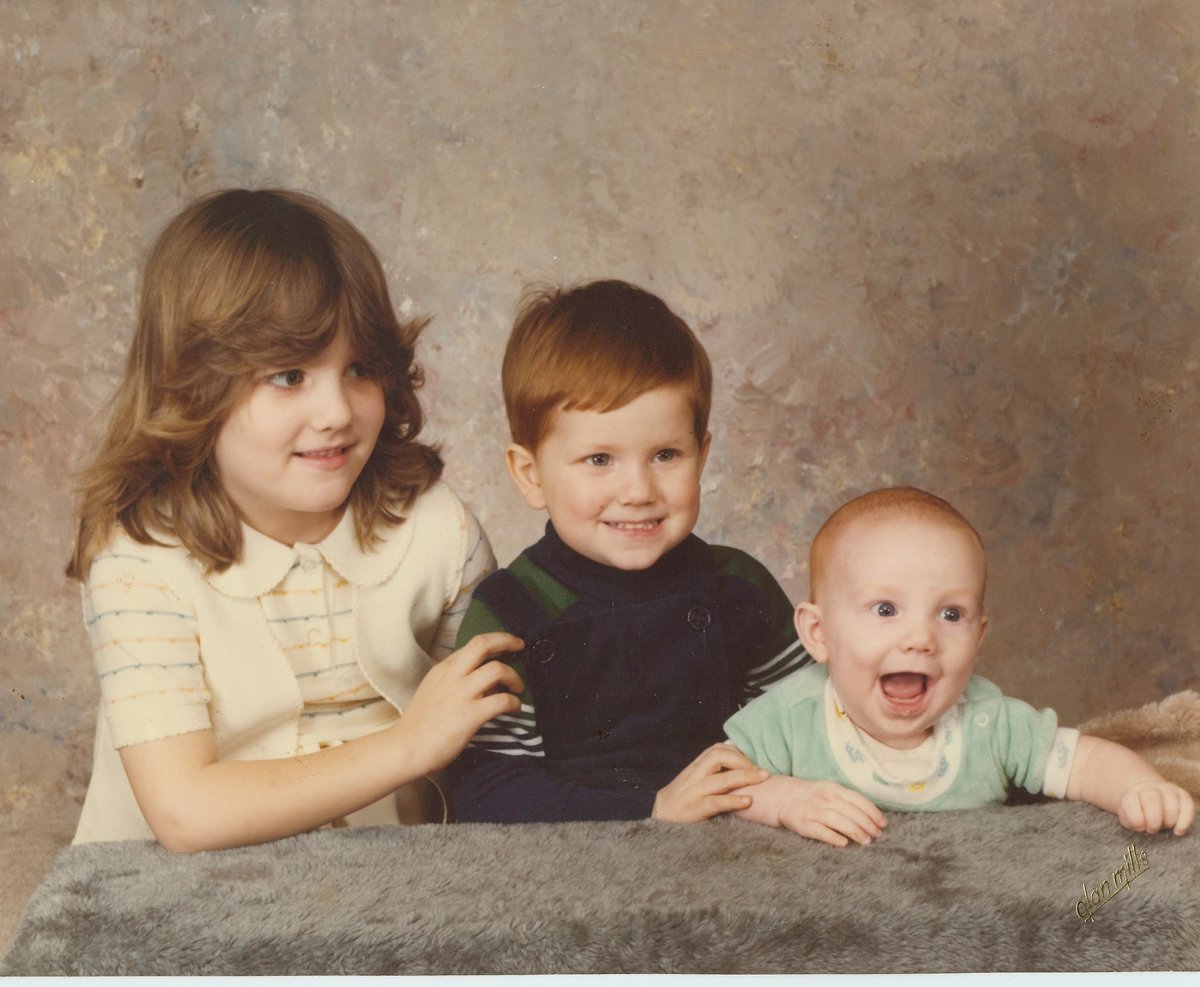
My birthday is November 3, 1979. This means that Election Day 2020 in the United States was also my 41st birthday. It was a very strange birthday. But I believe that anyone born in the first week of November who lives and/or votes in this country often finds themselves celebrating strange birthdays. Their memories and experiences of those days are different, more vivid, and more hopelessly entwine the political, civic, and personal.
I was very nearly born on November 2nd. That was my mother’s 28th birthday. She went into labor at lunch with my aunt and my grandmother. She was enjoying time away from my older brother and sister (then two and five) and didn’t want to change her plans. When she got home, she was well into labor but didn’t tell my father. My godmother, whom my whole family calls my Aunt Joette but who is not, strictly speaking, my aunt, and her husband, my Uncle Mike (same deal) came over to visit.
Uncle Mike somehow picked up that my mother was having contractions, timed them in his head, and told her when it was time to go to the hospital. He also offered to watch my siblings while my father drove her there. He even cleaned and vacuumed the house, with my brother clinging to his leg. Aunt Joette, who was 26 but already had three children of her own, hopped in the back seat of my parents’ Thunderbird. My mom, now seriously uncomfortable, told my dad to punch it. He drove through Detroit at over 100 mph to Hutzel Hospital, where I would be born. My godmother, always terrified of expressways and fast driving, has never ridden in a car with my father since. My dad still says he has never made such good time downtown.
But once they got to the hospital, everything stopped. My parents say it was the first sign of how stubborn I could be. (Frankly, this trait is overdetermined in my family.) My mother was in labor for more than 24 hours. Her doctors prepared for an emergency C-section before I arrived, about an hour and a half before the end of November 3. Since 1979 is an odd-numbered year, there wasn’t a federal election that week. But it would have been a good Election Day story if there had been one.
My mother’s father’s birthday was October 29th. In Detroit, October 30th is Devil’s Night. October 31st is Halloween. November 1st is All Saints’ Day and Dia de los Muertos; this holiday is a pretty big deal in southwest Detroit’s Mexicantown, where Uncle Mike, Aunt Joette, and my cousins Rachel, Nikki, and Miguel went to church at Holy Redeemer.
November 1st is also my mother’s brother’s birthday. My Uncle Chris is exactly fourteen years younger than my mother and fourteen years older than me. He turned 30 two days before I turned 16, and called my mother the day in between, and since my mom wasn’t home, he and I talked for about half an hour. With leap days included, he is just one day closer in age to my mother than he is to me. My mother’s birthday (and All Souls’ Day) is November 2nd, and mine is November 3rd. It’s a lot of birthdays and holidays in just a few days. My parents’ wedding anniversary is February 5th, which explains why I was born nine months later; the others in my family can plausibly be blamed on cold Michigan nights. This has always made the week of Election Day a pretty big deal in our family.
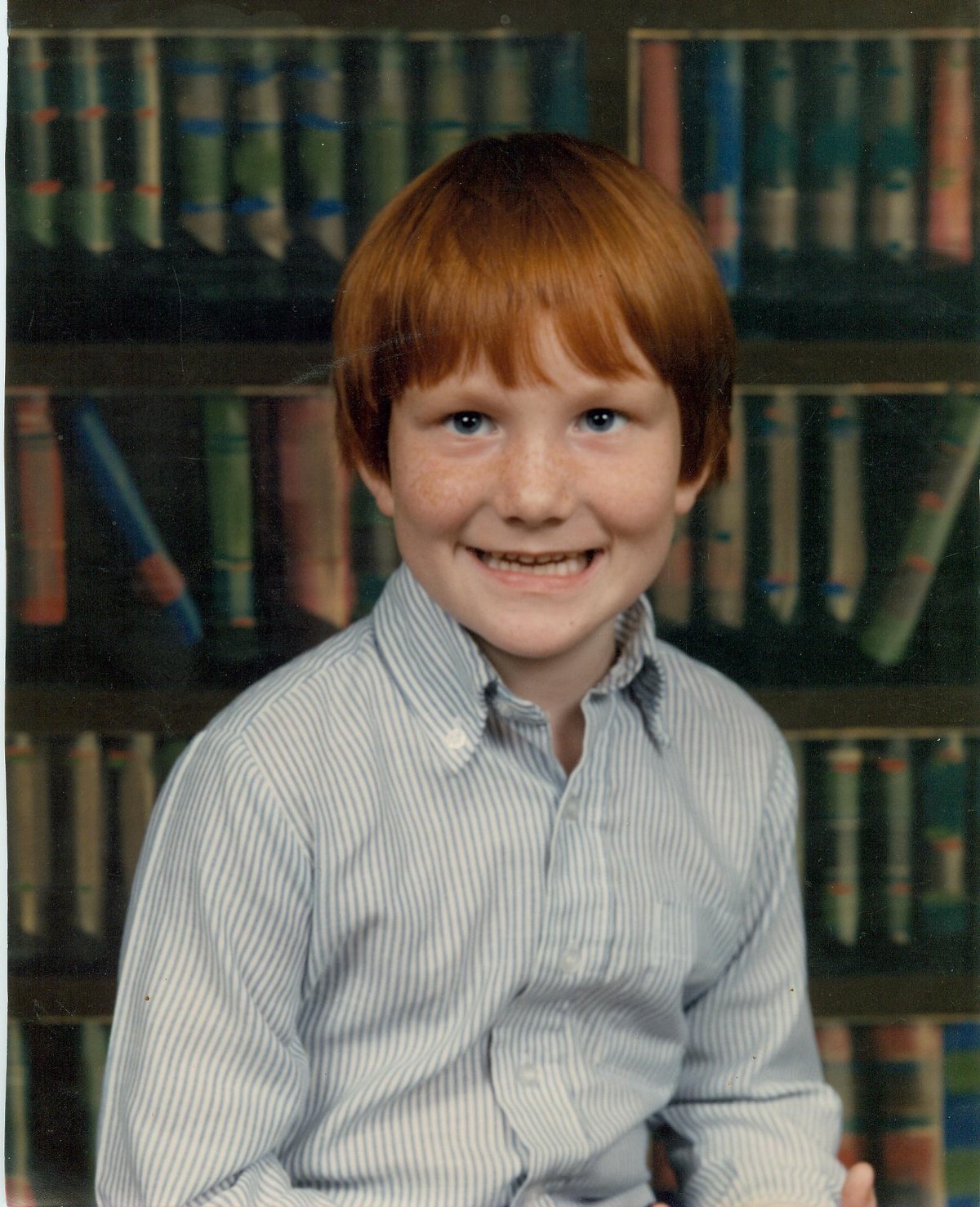
The first President elected in my lifetime was Ronald Reagan, on November 4, 1980. I don’t remember this very well, but I have seen pictures of my first birthday party the day before. My parents, like a surprisingly large number of Americans, both voted for independent candidate John Anderson, supposedly moved that he might be driven to bankruptcy by his campaign debts if he didn’t receive enough of the vote. Either they’re misremembering or are suckers, because in September, Anderson had already qualified for matching funds. Anyways, they both worked multiple jobs and had three small children, and ready access to reliable political information was not very good 40 years ago either.
I remember Reagan as President, but do not especially remember his reelection on November 6, 1984. I do remember my 5th birthday party extremely well. It was at McDonald’s, and my friends from kindergarten Andrew and Norman were invited. Ronald McDonald was there, I ate at least six Chicken McNuggets (which I still love), and Andrew gave me the He-Man action figure Jitsu, a bad guy with a golden hand that did a karate chop. He was kind of an evil knockoff of Fisto. Another of my uncles also gave me a copy of Jitsu, and I was excited about returning it and picking out a different He-Man character, but my younger brother took the second Jitsu out of its box, so we had two Jitsus, which is at least one too many. My brother was only three, but I was very upset with him.
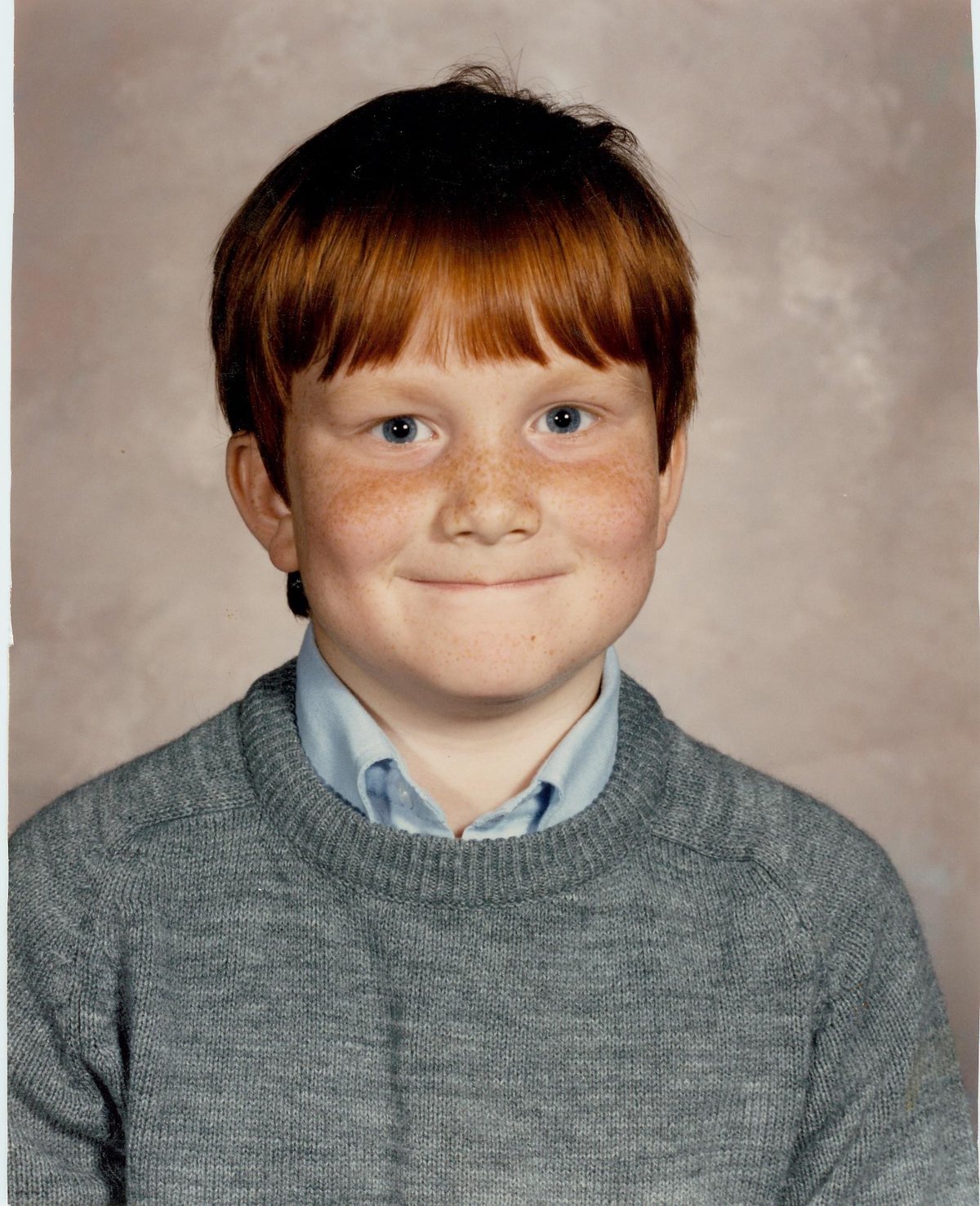
In 1988, my mom and I were pulling for Jesse Jackson, and both of us were pissed off when he didn’t win the nomination. (I’m still mad about this, actually.) This is when I start to remember Phil Hartman’s Ronald Reagan, Dana Carvey’s George H.W. Bush, and Jon Lovitz’s undersung Michael Dukakis (“I can’t believe I’m losing to this guy”).
My parents were not around very much—my sister is really the one who raised me while the two of them worked, and I’ve always thought of her as an equal parent as well as a beloved sibling—but they indulged my watching late night television and asking questions about the conventions at a young age. George H.W. Bush was elected on November 8th. (See, it’s not really always the first Tuesday in November, because for whatever reason, November 1st doesn’t count.)
Bill Clinton was elected President on November 3, 1992, my thirteenth birthday. In my junior high’s mock election, held the day before, Ross Perot won in a landslide. (We’d moved to the suburbs by this point.) Why were mostly-white suburban tweens entranced by Perot, who had simply nothing in his history or character to appeal to them, besides perhaps a funny voice? Some of it felt like a collective prank, a joke on the fact that the school was pretending to let us decide something we actually had no choice about: “Let’s all vote for Perot, and see what happens.”
I think some people were moved by the idea that something, anything unexpected might happen. It’s like why little kids are fascinated by dinosaurs: here are these creatures, older and bigger than your parents, older and bigger than anything, who once ruled the world. They all died, and anything, no matter how powerful or seemingly inevitable, can die again and be replaced by something new. I don’t know; maybe that was why my parents, still in their late twenties, wanted to vote for Anderson. Maybe that was part of why so many of my friends in college voted for Ralph Nader. Longing for change becomes something more than rational when so many external things determine your life.
Anyways, Bill Clinton was a deeply flawed President and remains a deeply flawed human being. Still, given the choices, I’m happy with how it actually turned out.
November 3rd was also the day of my last junior high football game. I was a starting defensive tackle, and our team was undefeated. So were our cross-town rivals at Wilkinson. They ran all over us that day: our defense, which had shut out all but one team we played and gone games without giving up any yards, could not stop Jason Byrd, a big, fast, 14-year-old athlete most of us knew from little league baseball. He died in 1997.
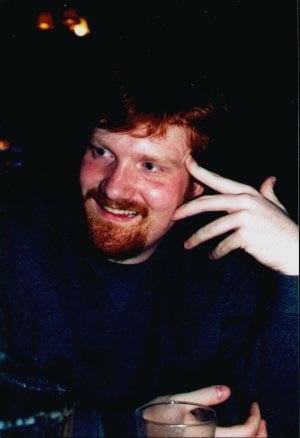
In 2000, I turned 21. Four days later, I voted for the first time. I did not vote in the 1998 midterms, even though Michigan’s governor was on the ballot, because my college town made it difficult for students to register to vote, and because, having just turned 19, I briefly did not believe electoral politics could create genuine change. I was also lazy, and foolish, and preoccupied with many other things.
But by 2000, I’d had a change of heart, and voted for Al Gore. I now think Gore would have been a better President than I believed then, partly because of the incredibly guarded, talking-out-both-sides-of-his-mouth campaign that he ran, but also because I did not foresee the disaster of the Bush years. I thought things would carry on mostly like they had, and that Bush, while dim and disengaged, would be a relatively benign conservative like I thought his father had been. I also thought he wouldn’t win anyways. I was a real putz. I had studied so much history but had no idea of what history had in store for us.
That year, my senior year in college, I lived in a big co-op house with fourteen other people. The house was right around the corner from my favorite bar, where I’d rung in my 21st birthday at midnight. We all watched the election results on CBS—I don’t know who chose that network, but Dan Rather had a lot of homespun idioms he used to introduce all the tosses and turns.
After the news came in that Florida had been called for Gore, then moved to toss-up, then called for Bush, then nobody was sure, my worst roommate, the one who let her dog shit all over the living room carpet, who installed her own private air conditioner even though we all split the utility bills, who everyone hated and nobody could figure out how she’d moved into the house or how to get her to leave, was openly celebrating a Bush win and taunting the rest of us (pretty even split Gore/Nader). I had one thought: I need a drink.
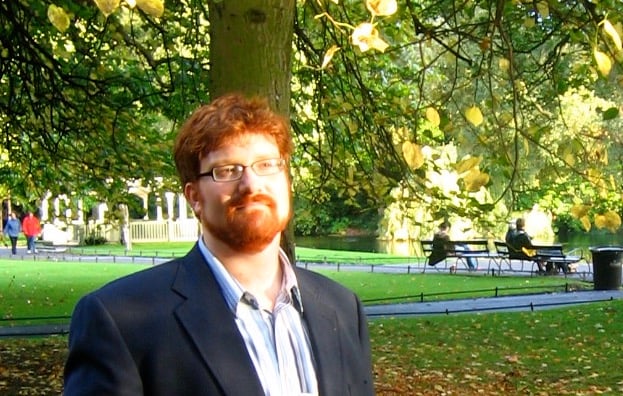
Bush won again, defeating John Kerry after Election Day on November 2, 2004. For me, this was the biggest gut-punch election of my life. I followed it closely, I watched all the debates, I participated in antiwar, anti-Bush, and anti-Cheney demonstrations, and met up with other young people involved in politics in Philadelphia, where I’d moved in 2002. I had thought Gore would win, but was convinced Kerry would—even after the midterm losses in 2002, even after the bombs fell on Iraq the day after my first son was born.
The next day, my 25th birthday, I walked around the city in a haze. I had to get groceries. The new Trader Joe’s on Market St had opened, right across the street from Center City’s small but lively porno district. I talked to my parents and each of my siblings on the phone, but I don’t remember what any of us said. Ohio was close, and there would be recounts, but it was over. Maybe Kerry would have been a good President, maybe he wouldn’t have, but at that moment, every possibility felt foreclosed upon. This is what they want, I thought. It wasn’t for the first time and certainly would not be the last.
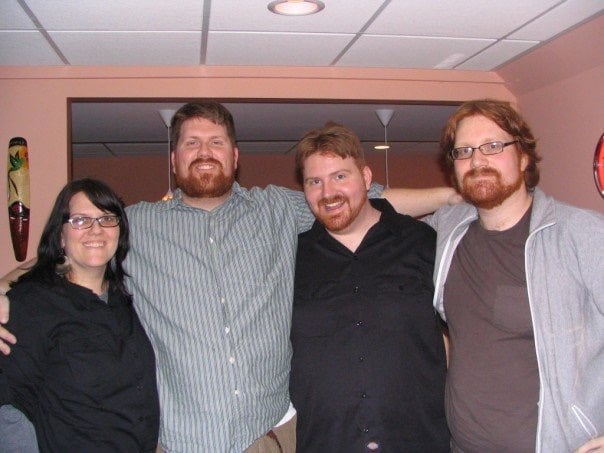
For years, I thought Barack Obama was elected on my birthday in 2008. I even told people in the run-up to the 2020 election, just weeks ago, no, it’s OK, it’s actually good luck: Barack Obama won on my birthday. It’s not true. He was elected on Tuesday, November 4th, the day after.
But those few days all feel like one day, in the best sense. Now, my younger son had just turned one year old in September, had been walking (for some value of “walking”) since August, and his mother and I hadn’t properly slept yet. On November 3rd, my friends Matt Thompson and Robin Sloan celebrated the fifth anniversary of their blog Snarkmarket by asking me to join them as the site’s third author. I was scrambling to finish my doctoral dissertation in comparative literature, and to send out applications for Assistant Professor and Visiting Fellow jobs that were rapidly disappearing thanks to the economic collapse. (More jobs I applied to cancelled their searches than gave me outright Nos.)
It was total disaster. And yet somehow, the best thing had happened. Obama was the only Presidential candidate I’d supported in the primary who’d ever made it to the general election (that’s still true, by the way). He was the first Presidential candidate I’d voted for who’d won, and I had a young, multiracial family living in the birthplace of the Declaration of Independence who were counting on him. Health care for everyone, an end to the war in Iraq, real progress for Black and Latinx (we didn’t use the X then, but I will now) and Middle Eastern and South and Central Asian people seemed imminent. I was now 29, and even though I professed to know better, to have made myself properly jaded, properly paranoid, properly realistic about the limits of elected officials, the military, corporations, and the American people… I found myself quite carried away, like so many others. Meanwhile, the slaughterhouse continued its work.

By November 2012, I was separated. I was living in Manhattan’s Hell’s Kitchen, but still registered to vote in Philadelphia. I had completely bounced out of academia, but somehow wound up with a series of very good jobs writing for technology magazines and websites. My son and his mom had just moved from Philadelphia to Atlanta after Philly’s public schools fell apart, making it much harder for me to take the train to see them.
My 33rd birthday was nevertheless my favorite ever. I was visiting Washington, DC for a few days, and all my friends in the area gathered to have brunch. Some of them knew each other, and some of them didn’t. We swapped stories about our “formative nerd texts,” the book that shaped our obsessions at an early age. (My answer: Calvin and Hobbes.) I had a crush on someone again, one of the first since my wife, and I didn’t know what to do with it. On the way back to New York, I stopped in Philadelphia to vote for Barack Obama again. (He won.) The city I’d lived in for a decade began to feel less and less like home. When I finally got from Penn Station to my apartment, I felt twin waves of longing and relief.
I turned 37 on November 3, 2016. My mother had just turned 65. My uncle, whom I remember as eternally 30, turned 51. By then, all of my grandparents had died. I had moved back in with my parents in metro Detroit the year before, partly to help my parents after my father’s heart attack, and partly because I had no place else to go.
I did not want to celebrate my birthday. I did not want to see or be seen by anyone. I closed off my wall on Facebook well before November. I stopped posting on Twitter a month before Election Day. Even though all the polls and polling averages, which had been so successful in 2008 and 2012 by controlling for known problems, had predicted until shortly before the end that Hillary Clinton would likely sail to an easy victory, I could feel what was coming.
I felt it in the part of my brain that can recognize a rattlesnake in the grass. There was nothing statistical about it at all, nothing deductive, just pure anticipation. Certain other primates have a word that means “snake,” and everyone in their band knows what it means. When they hear that word, the monkeys run for the trees. My brain was screaming that word, and it was running for the trees.
I thought, I will vote. And if she wins and he loses, then I will have helped stop this. And then I can kill myself.
Of course, it didn’t work out that way.
![]()
This Election Day and my 41st birthday have been even more unusual. It was my first birthday without my sister, Kelly. She had also been living with my parents after many years in New York, and died suddenly in April from a pulmonary embolism caused by COVID-19. My sister Kelly was 45 years old.
She would have been so good at figuring out how to celebrate my birthday and my mom’s, to keep us all safe and still have fun. She would have been so happy to vote to turn Michigan blue again. She would have had my nieces and nephews rolling with laughter at the funeral she didn’t have. She was my parent, and she was my sister. And she had a whole life to live that had nothing to do with me, but still shared with me, that she would tell me about on long telephone calls and late-night talks. And if she loved you, family or friend, she loved every part of you: she loved your parents and partners and children. She was the only person in my family who could befriend every generation, who could tell the third cousins apart, who knew what your second cousins’ kids wanted for Christmas without having to ask.
I feel like I lost all three people she was: sister, parent, protagonist. I still have so much I want to ask her about. I think I know, but I will never know.
We couldn’t celebrate my or my mother’s birthday with my brothers and their families, so my mother, my father, and I tried to make an even bigger celebration ourselves. Her birthday bled into mine, as it always does. We bought a Grand Traverse Baking Company cherry crumb pie, which was delicious. We had all already dropped off our ballots in October, so on Election Day (my birthday), we ordered carry-out from my favorite Lebanese restaurant. I bought a bottle of Jameson Irish whiskey, but didn’t drink any of it. I was in a good mood all night (the pie definitely helped), even as Michigan and Pennsylvania remained uncounted, as Georgia remained uncertain, as the blue mirage turned into a red mirage and back again.
Even now, although nearly all the votes have been counted (and Georgia’s, my son’s adopted home state, have been counted twice), Election Day is somehow not yet over. We knew it would be Election Week; few of us knew it would be Election Month.
Yet that means somehow my birthday is not yet over; it has metastasized to become all of Scorpio season, perhaps to Thanksgiving and after. And that means I am still only on the verge of turning 41, still 40, still waiting for the clock to turn over to start this next part of my life, a second half if I am lucky, a final third if everything goes chalk. I wasn’t born until late in the night on November 3, 1979, and I proved even before I was here that I can wait a very long time.
Still, I would like this to end, and end properly, even if I have to march on the state house in Michigan’s capitol building with the family I have left to see it out. Everyone is dying again; they have never stopped dying, and I would like to end that too.
I have no fantasies about Joe Biden or Kamala Harris. I don’t see them as avatars of hope like I saw Barack Obama, or as neoliberal schemers determined to betray their base. But I cannot survive (too many of us cannot survive) the petty fascist death cult of the Republican party under Trump. It has been building to this for generations, but now achieved its worst form yet. I will use every tool at my disposal, including the Democratic party, to crush them and drive them from power, like St. Patrick did Ireland’s snakes in legend.
They let New Orleans drown; they poisoned Flint; they let the police and bigots fashioning themselves as police murder Black people throughout the country, and then said it was the victims’ fault. They let my sister die and called it a rounding error. They have always been my enemies, ever since I was a little boy watching Ronald Reagan on television and realized what he was, even though I didn’t know the words for it. This was a man who would let us all die and (if he said anything at all) call our deaths noble and brave and necessary, if it would suit his vision of his own power, and perhaps enrich people I would never know.
Snake. The word I was looking for, that I already knew at four years old, was snake.
My father is terrified of snakes: he says that this is because in Ireland, where his parents were born, they have none. Snake is also what my mother’s people, the Ojibwe or Lake Superior Chippewa, called the Dakota and Lakota peoples when they fought them in what’s now Wisconsin: Sioux is a Chippewa word. (Literally, nadouessioux, or more properly natowessiwak, means “little snakes.”)
I know that if we want elections worth the name in 2022 or 2024 or any year afterwards, we have to win. The GOP, despite their hold on state legislatures, the courts, and at worst a 50/50 split in the US Senate, are fighting like they will never win a fairly counted, fairly administered, unsuppressed election again. And they might be right. But Democrats have to fight too. For once, Democrats have to forget that they’ve won and continue to fight.
I would like back everything that I have lost. But until the end of time and the return of the Messiah (and yes, I do mean Gritty), none of us can ever have that. All we can look forward to are more birthdays, more yahrzeits, and—I hope—more Election Days.
Maybe they will even become a holiday. Wouldn’t that be beautiful?





Stay Connected